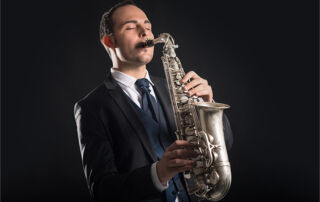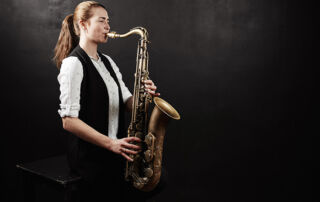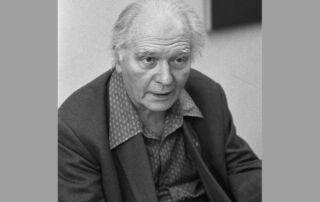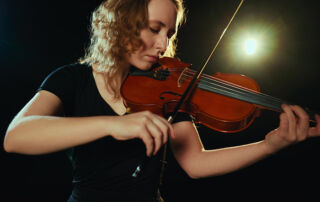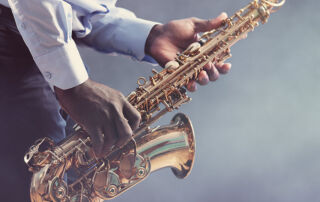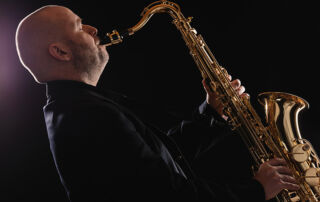It’s undoubtedly the question that comes up quickly for most of you.
I’ll skip the scientific studies or neurological developments, which are very interesting but only partly answer this question.
Playing music largely depends on the instrument you’ve chosen and your own ability to learn and absorb.
It’s undeniable that the younger you start, as a child, the more evident and rapid your progress will be.
Is it due to greater neural or brain flexibility, or simply better predispositions at certain ages? It’s certainly something to consider.
But are we doomed to work harder or never enjoy playing music at an older age? I can’t believe that.
Couldn’t the speed of learning depend on one's own motivation?
What does it mean to play music?

The age in question...
The chances of progress vary greatly between individuals. We've already mentioned the choice of instrument and the predispositions that form the foundation of it all.
Unfortunately, we are not all equal, but I’d say that’s a good thing. So many different personalities, characters, and talents undoubtedly create a wealth of diversity.
It all begins in childhood; we don’t choose our background, and everyone has their own heritage. This can be an advantage or a disadvantage, depending on how you look at it.
Many examples prove that nothing is set in stone.
I would still say that having absolute or relative pitch plays an important role in the beginning, especially in recognising musical notes and being able to correct intonation or play accurately for all beginner musicians who produce the notes themselves on their instrument.
The child, returning to our paragraph’s subject, will likely be less inclined to ask certain questions compared to an adult, who, through experience, would often need answers to the arguments put forward by the teacher.
And this needs to be nuanced, as today’s children are not the same as those of the past. Many teachers now find themselves faced with a lot of questions raised by children.
Education methods have also changed as a result, and we now face different realities, which is a good thing.
Music is also about impermanence; everything is in motion, and anything is possible when it comes to interpretation.
The profession is truly rewarding because it requires constant self-reflection and adapting the teaching to each individual.
Generally speaking, an adult who has never played an instrument in their early years will likely progress more slowly than an adult who experienced it as a child.
In any case, it will feel less familiar to them, but again, it all depends on the person’s experiences during childhood.
Various questions may arise, such as, “Why did I stop and why am I starting again?” among others. There could be many reasons: lack of time, poor communication between teacher and student, or even tough decisions between higher education and music.

Is the concept of time relative...
We cannot separate the idea of time as an exact duration—a specific number of hours set by some unknown authority as the absolute truth for “playing music”—from, on the other hand, a personal rhythm, a self-imposed discipline, or a schedule set by oneself or a teacher.
Practise, exercise, and personal work are part of the daily routine of every professional musician.
Maturity and experience allow us to organise ourselves more efficiently and focus on what really matters.
As an adult, it's easier to express and absorb this compared to a child who is still developing and often has to understand and take in much more. Their “decoder” is not yet functioning at 100%.
Not to mention, the ability to concentrate is a key advantage for making progress.
Is the mantra "the more you work, the more you progress" true?
Repetition is important at the beginning of learning, especially for acquiring the correct posture and movements needed to master an instrument.
However, it requires thought and understanding. No one is immune to mistakes, and again, I repeat, "that's a good thing."
Understanding your mistakes to progress is rewarding.
After a certain number of hours of practise, the feeling and acquisition of the "right" movement become more natural.
Once again, each person is different; for some, it will be less challenging than for others. Patience is key!
To play music, everyone learns to play an instrument, and as demonstrated above, mastering the basics inevitably involves acquiring instrumental technique.
This acquisition is undoubtedly the primary foundation for being able to play music with your instrument.
In talking with my colleagues and musician friends, we’ve all faced obstacles during our learning journey. It’s part of the process, just like in life. Sometimes we feel like we’re stagnating or even regressing. However, what’s important is not to lose hope and to keep the motivation going.
The teacher is there to guide you, to help you discover your potential, and to encourage you.
They are also there to guide you, correct your mistakes, and above all, be honest. Your progress will depend both on your personal effort and the trusting relationship you build with your teacher.
It would be wise for each person to define what they consider "playing music." Is it performing a concerto from the great repertoire, playing the piece that made you fall in love with your instrument, or perhaps a personal challenge?
This will make your goal clearer for both you and your teacher. At that point, they will be able to guide you toward where you aim to go.
But above all, playing music is about enjoying yourself so that you can share it with others. This joy is something you must nurture during your learning process.
In conclusion, it is objectively impossible to answer in terms of a specific number of hours.

